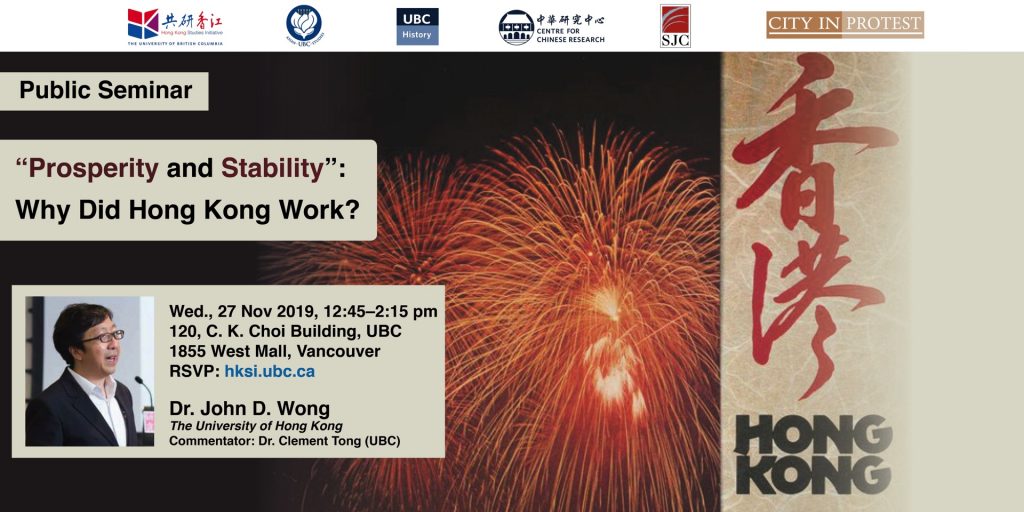Dr. John D. Wong (The University of Hong Kong)
Commentator: Dr. Clement Tong (UBC)
A City in Protest event
The current crisis in Hong Kong is characterized by a level of social unrest the city has not seen since the riots of 1967. In the aftermath of the previous round of turmoil, the British colonial regime regained legitimacy of its rule largely through the socioeconomic improvement of Hong Kong. “Prosperity and Stability” became the hallmark of Hong Kong’s success that extended beyond the 1970s into the period of political uncertainty in the 1980s. Socioeconomic development in the post-handover era stands in sharp contrast to the economic miracle of post-riot Hong Kong in the 1970s and 1980s. Post-handover Hong Kong has registered lackluster economic growth in most years, and growing income inequality is only exacerbating the situation for the average Hongkonger. Examining the current crisis beyond the protestors’ political demands, this talk explores how socioeconomic forces might have animated differently the various demographic groups in Hong Kong and questions whether political reforms alone could put an end to the conflicts in the city.
Dr. John D. Wong received his BA (Hons) in Economics from the University of Chicago, MBA from Stanford University, and PhD in History from Harvard University. He has taught at the University of Hong Kong since 2012. His research focuses on the flow of people, goods, capital, and ideas. With a particular interest in Hong Kong and the Pearl River Delta area, Dr. Wong explores how such flow connected the region and its residents to the Chinese political center in the north as well as their maritime partners in the South China Sea and beyond.
Studying the China trade in the context of early-nineteenth-century global exchange, his first monograph, Global Trade in the Nineteenth Century: The House of Houqua and the Canton System (Cambridge University Press, 2016), demonstrates how China trade partners sustained their economic exchange on a global scale long before Western imperialism ushered in the era of globalization in a Eurocentric modern world. He has published in various academic journals including Business History Review, Law & Literature, and Asia Major.
This seminar is organized by the Hong Kong Studies Initiative and co-sponsored by: Department of Asian Studies, Department of History, Centre for Chinese Research, and St. John’s College.



